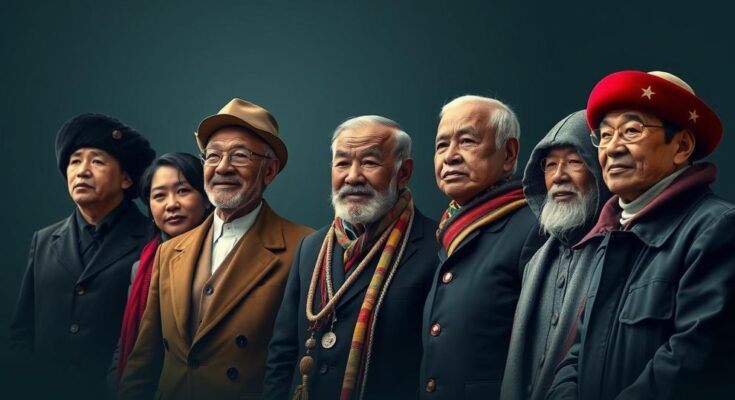A group of 15 Western nations urges China to release detained Uyghur Muslims and Tibetans, advocating for independent human rights assessments in Xinjiang and Tibet. Ambassador James Larsen highlighted concerns around arbitrary detentions and restrictions on freedoms in these regions. China rejects accusations, claiming the West is weaponizing human rights discussions to interfere in its internal matters.
A coalition of Western countries has urged China to liberate all unlawfully detained Uyghur Muslims and Tibetans, emphasizing the need for independent human rights observers to assess the situation in these regions. During a United Nations General Assembly meeting, Australian Ambassador James Larsen represented 15 nations, including the United States and Germany, advocating for transparency in Xinjiang and Tibet. He highlighted the alarming claims from human rights groups, which accuse China of holding nearly one million Uyghurs in so-called ‘reeducation camps’ and imposing severe restrictions on Tibetan freedoms. Human rights experts from the UN have expressed grave concerns regarding reports of arbitrary detentions, forced labor, and the destruction of cultural sites within Xinjiang. Despite multiple opportunities for China to address these allegations, Larsen noted that China dismissed the UN’s human rights assessments as illegitimate during its recent Universal Periodic Review. Furthermore, he described the ongoing suppression of Tibetan culture and political expression, underscoring the need for accountability. In a counter response, China’s ambassador rejected these accusations, claiming that the Western coalition is exploiting human rights issues to incite conflict. He termed the UN’s assessment of Xinjiang as riddled with falsehoods and indicative of coercion from the US and other nations. The ambassador asserted that these actions are attempts by Australia and the US to undermine China’s internal affairs, framing human rights concerns as a guise for interference in the development of countries with different foreign policies. Meanwhile, the United States and its allies have labeled China’s actions in Xinjiang as genocide, a classification that Beijing adamantly denies.
The ongoing human rights situation in China, particularly regarding the Uyghur and Tibetan populations, has raised significant concerns among Western nations. Reports indicate that the Chinese government is allegedly detaining large numbers of Uyghurs in controversial reeducation camps and severely restricting freedoms in Tibet. This has led to growing calls for transparency and independent assessments of the human rights conditions in these regions. The clash between Western nations advocating for human rights and China’s staunch denial of wrongdoing illustrates a profound geopolitical divide over these issues.
Western nations are increasingly vocal about human rights abuses against Uyghur Muslims and Tibetans, calling for their release and independent oversight to evaluate conditions in these regions. In contrast, China’s government vehemently defends its actions and accuses Western nations of manipulating human rights issues. The ongoing debate highlights a significant international tension regarding human rights accountability and national sovereignty.
Original Source: www.aninews.in



